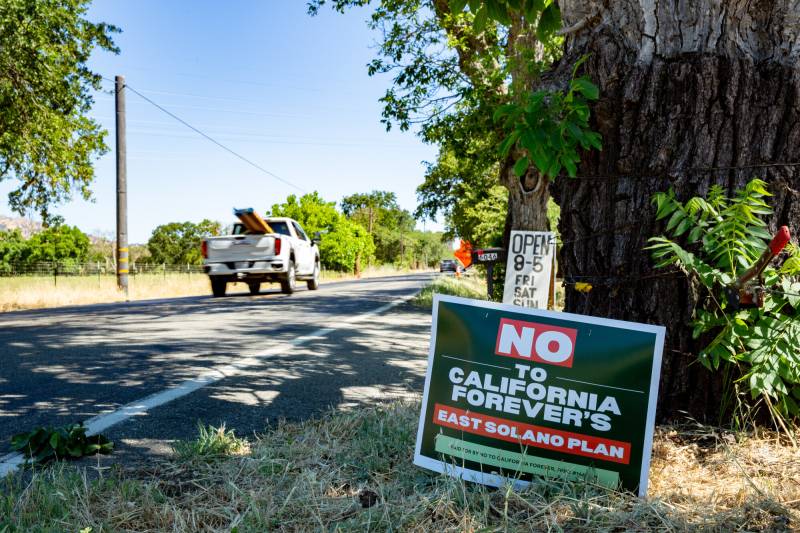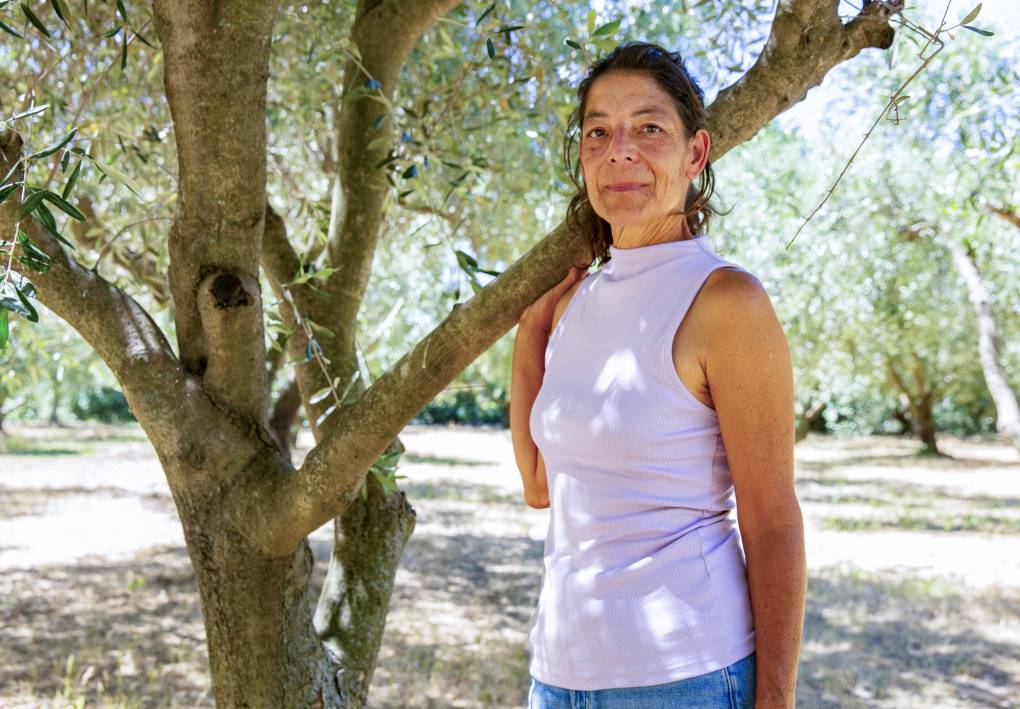The decision to pull the ballot measure comes ahead of the Board of Supervisors’ meeting on Tuesday when officials were expected to submit the “East Solano Plan” to the voters this fall. Instead, the company has agreed to work with the county on zoning changes and an environmental impact report before re-submitting the proposal to voters.
“Announcing last year that California Forever would seek a vote on the November 2024 ballot, without a full environmental impact report and a fully negotiated development agreement, was a mistake,” Supervisor Mitch Mashburn said in a statement. “Delaying the vote gives everyone a chance to pause and work together, which is what is needed.”
Those opposing the project repeatedly pointed to the company’s water strategy, which included questions regarding plans to rely in part on imported water supplies. Company spokespeople said those questions could only be answered after voters approved the initiative. Now, the company will have to find those answers within the next two years when it conducts its environmental impact report.
Others were concerned about environmental impacts on the Jepson Prairie and vernal pools within the proposed city’s boundaries. A recently published county report (PDF) found that the new city could significantly change the biodiversity and environmental quality of those habitats.
Among the company’s guarantees was the promise that the new city would “pay its own way through the tax revenue it generates” and would be “operated at no cost to the Solano taxpayer, except for those who live in the new community.”
In contrast, Solano County’s report found that the project’s costs could exceed revenues generated by the new town, potentially leaving the county in a fiscal deficit of $103.1 million once the city was fully built out. Taxpayers could be on the hook for an additional $88.8 million for firefighting services from the Montezuma Fire Protection District, the report found.
County supervisors ordered the report during their June meeting, and officials had only 30 days to compile research. Because of the quick turnaround, the report noted that its fiscal impact assessment is not comprehensive.
California Forever’s ambitious plan aimed to operate outside the traditional bureaucracy, which housing advocates have criticized for slowing down housing development. Despite this new timeline, Sramek is not concerned about getting the project on the ballot in 2026 and moving forward with construction.
“We have a lot of examples in California where the process has resulted in projects that haven’t broken ground in 10 or 20 years, and I think what is encouraging here is that the county recognized it,” he said. “I think what we’ll be able to do here is the right balance.”

